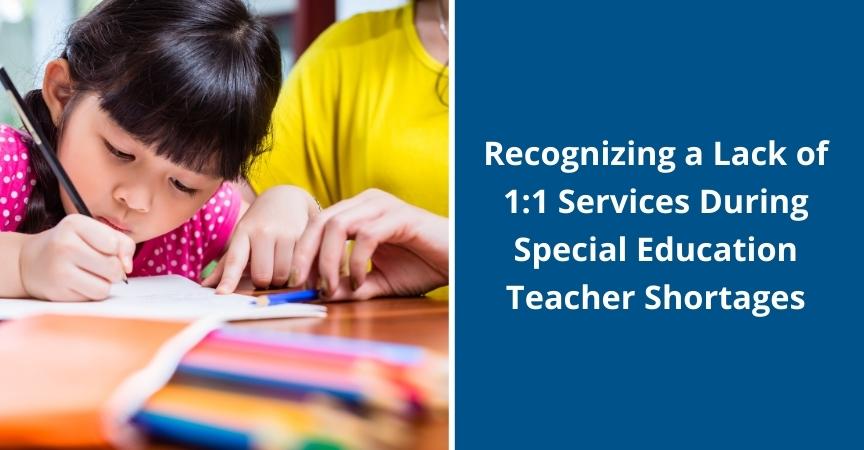Special education aides are essential to the academic learning path of students with disabilities who require one-on-one assistance during their school day. Trained to administer the goals and objectives of a student’s Individualized Education Plan (IEP), these aides offer an invaluable service to the school community.
Across the nation, shortages of professionals in education are taking their toll on classrooms, and students with disabilities are not left unaffected. Substitute teachers and paraprofessionals are regular fill-ins as districts are left with hundreds of job openings across the state of California. As of August 31, 2022, Los Angeles Unified School District still had 200 teacher vacancies, and Sacramento City Unified School District listed 92 available positions.
According to data from National Center for Education Statistics in 2020-2021, 15 percent of all students in the US received special education services under the Individuals with Disabilities Act (IDEA) – roughly 7.2 million students. While percentages of the student population shift geographically, special education positions are routinely among the most difficult positions to fill and maintain.
IDEA requires school districts to have “highly qualified” special education teachers available to serve students with disabilities, but if schools are unable to fill these positions they are allowed to temporarily hire aides to meet student needs. With outstanding teacher shortages, this temporary solution has long been extended, leaving students without proper support. Students who require one-on-one services throughout the day are especially impacted when their behavior needs are not met, ultimately unable to access their education.
Lack of routine and consistency have major impacts on children, especially those with special needs. Constant changes in substitutes and aides, varying degrees of support, inconsistent application of learning goals, and failure to implement services all impact the success of a child with special needs. Signs that your child is not receiving the support she needs while at school include:
- Drastic changes in the child’s behavior or interest in school
- Parents are being called to pick the child up early from school due to behavioral issues
- A non-verbal child coming home with injuries
- Lack of communication between the special education teacher and parents
As a parent of a child with a disability, it is important to take a proactive role in your child’s educational experiences, to know what rights you and your child have, and to examine the options available to you when problems persist. Scheduling meetings with administration to determine what steps are being taken to fulfill your child’s IEP, requesting a timeline of when services will be met, and attending IEP meetings are key steps you can take to towards ensuring your child’s behavior and learning goals are being supported as required. If your child continues to not receive IEP services, seeking help from an education rights attorney may be the most productive way to ensure your child’s needs are being met at school.
Contact the offices of Jennifer Chang to discuss your child’s special educational needs and the legal options that are available to your family.
